Latest updates
The UNGA Legal Committe Prepares to Discuss a Proposal on the Current Situation of Women in Afghanistan
September 11, 2024
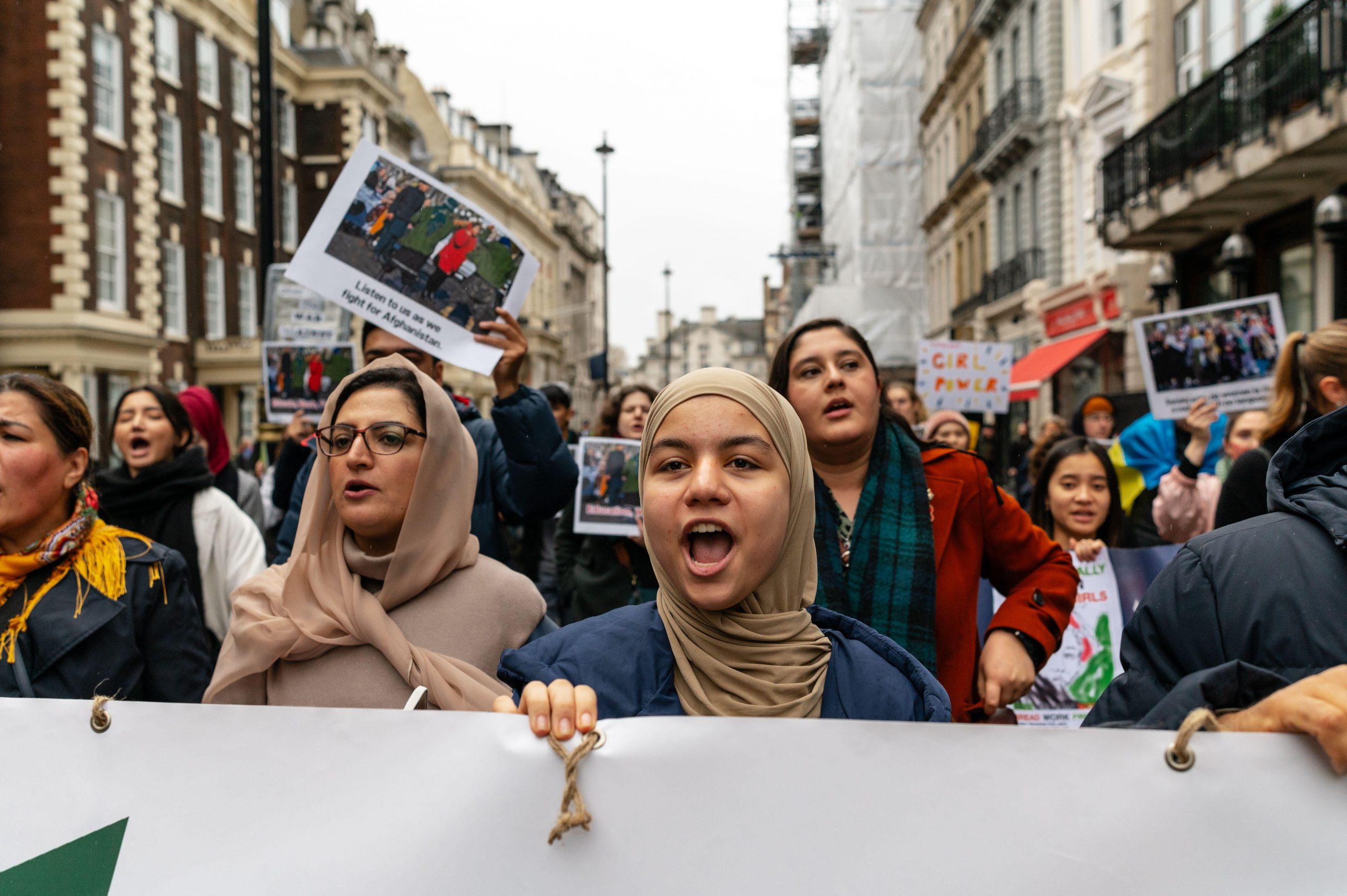
Afghanistan is placed as the last on the 2024 SDG Gender Index. Taliban institutionalized gender oppression is getting more rigid as time passes.
Afghan women and girls are excluded from education beyond the sixth grade. They are also prohibited from running a business, showing their faces, speaking outside of their homes or even being heard from within their homes by people outside.
Afghan women also report difficulties in engaging with Taliban local authorities, being excluded from public meetings, having low access to both formal and informal dispute resolution mechanisms and general erasure from many levels of decision-making.
Despite the situation in the country, women are speaking out against the Taliban in public, sharing acts of resistance online and founding organisations for education. Women are also fighting for their right to be represented at the UN.
Once again, Afghan women have been let down by liberal democracies' inaction against the Taliban. The Taliban demanded that Afghan women be excluded from the June UN conference on Afghanistan, and the UN complied with their wishes. Afghan women have every right to believe that the West has turned its back on them and is essentially overlooking their oppression.
The UN special rapporteur has suggested that the UN include the crime against humanity known as "gender apartheid" in international law following a campaign involving Afghan women and international human rights organizations. This would increase the obligation on other nations to stop and punish those, such as the Taliban, who uphold the extreme sex-based oppression of women. The legal committee of the UN General Assembly will debate this proposal in October 2024.
CSOs are Necessary for the Safekeeping of Women and Girls in Afghanistan
June 8, 2023
The international community raises its voice to condemn the rising gender discrimination in Afghanistan. Since August 2021, Taliban take over, the unfair and unlawful measures restricting women’s and girls’ participation in public life have been intensified: the exclusion of women and girls from education beyond primary school, the restriction of their professional opportunities, and the ban on women NGO work.
The safety of girls in Afghanistan has been put in jeopardy again, when reported by Amnesty International earlier this month that nearly 80 girls were poisoned and hospitalised in two separate attacks at a primary school in Sar-e-Pul province. We consider that the protection of these vulnerable groups must be considered vital and that the international and local aid must be conditioned for the protection and promotion of women and girls rights in Afghanistan. Gender Concerns International supports women’s organisations to continue the efforts towards more equitable and inclusive access to resources and recognition.
Divorcee Women to remarry their ex-husband
March 31, 2023
Concerns are rising for women in Afghanistan as Taliban issued an order to revise and cancel the former judiciary divorce proceedings by bringing them to the conformity of the Taliban Judiciary. This implicates that there an eminent threat for women to be forced to return to their ex-husbands.
Remarried women especially, fear being arrested for infidelity as the previous divorce proceedings are not aligned with the Taliban's interpretation of Islamic law.
In solidarity, we must support Afghan women demanding that their rights are duly respected and fully protected. #AfghanWomen #WomensRights #Taliban #GenderEquality
Current Women’s Rights Situation in Afghanistan
March 7, 2023
Summary of key restrictions Women are facing in Afghanistan:
1. Restriction of freedom of movement:
- Women are not allowed to use public transport unless they are in the company of a male relative classed as a mahram.
- In general, they are only allowed to leave their house for urgent matters and have to wear full veils if they do.
2. Restrictive dress codes:
- Women have to wear full veils if they leave the house.
- Failure to do so puts their male relatives at risk of imprisonment.
3. No protection for women and girls threatened by violence:
- There are almost no contact points now for survivors of sexual violence to turn to.
- The nationwide system of support built up by women’s rights activists in the previous 20 years has almost completely collapsed.
- The Law on the Elimination of Violence against Women (EVAW Law) no longer has validity.
- Most recently reported, in the lead up to International Women’s Day, the Taliban regime has forced women to return to their abusive husbands.
4. Losing the right to an education:
- One of the first political acts of the Taliban was to forbid girls in many provinces from going to secondary schools.
- Now women have also been banned from universities.
- In the lead up to International Women’s Day, Afghanistan universities reopened following a winter break, but women are still barred by the Taliban.
- As male students return to class, Afghan women protest outside Kabul University on the 6th of March 2023.
- Without education, girls face an even higher risk of being exploited, maltreated or married off early. Their chances of later studying or finding a good job then disappear.
- Afghani girls feel robbed of their future.
5. Women have restricted work opportunities:
- Most women who worked now stay at home.
- Those women who by exception do still work, have to be accompanied by a male relative (mahram).
- Women have been/are being fired in most sectors, especially women’s participation in the humanitarian sector has taken an extremely hard hit.
- Many women with a good education or training had to leave the country.
6. Women’s rights work within civil society under severe pressure:
- Afghan women have been on the frontline of the resistance against Taliban oppression.
- They continue these protests in spite of the brutal beatings, arrests, imprisonments and abductions they face from the Taliban.
7. Severe restrictions to women’s political participation:
- Currently there is not one single woman as minister in the new Afghan government despite progress in recent years.
- Pre-Taliban progress: With the help of a quota regulation before the Taliban regime took power, women formed 27 per cent of the Members of Parliament in Afghanistan. Across the country, 21 per cent of all defence counsel were women and 265 judges were female out of a total of 1,951.
- The Ministry of Women’s Affairs is abolished and replaced by the Ministry for the Propagation of Virtue and the Prevention of Vice.
Tashkent Conference: Lift ban on girls’ education, curbs on media
June 27, 2022
US Special Representative for Afghanistan Thomas West says that all the colleagues at the Tashkent conference, which took place from June 25th to June 26th, have asked the Islamic Emirate of Afghanistan (IEA) to lift the ban on girls’ education, remove curbs on journalists and respect human rights.
On his Twitter account, Thomas West wrote: “Many colleagues also raised grave concerns regarding human rights abuses, including restrictions on journalists and women’s ability to contribute to the country’s economic growth”
The diplomat also spoke of deep concerns expressed at the continued presence of Al-Qaeda, TTP and other terrorists in Afghanistan.
While tools and perspectives differed, the US special representative claimed he found some important areas of continuing consensus among the envoys on enduring international priorities in Afghanistan. All were concerned about the continuing economic and humanitarian crisis, he said, calling the US the world’s leading contributor of humanitarian assistance to Afghanistan.
The Situation of Women and Girls in Afghanistan
June 26, 2022
It has been 344 days since the Taliban took power. For most Afghan women and girls, almost each one of these days since 15 August has brought a deterioration in their rights, their condition, and their social and political status.
Over the past 11 months, we have seen an escalation of restrictive policies and behaviours towards women as following:
- Afghanistan remains the only country in the world where girls are banned from going to high school.
- Women are restricted from working outside the home, except for a few sectors and particular roles.
- There are no women in cabinet and there is no Ministry of Women’s Affairs, effectively removing women’s right to political participation.
- Women are required to have a male chaperone when they are travelling more than 78 kilometres.
- They’re also required to cover their faces in public.
Combined, these rules limit women’s ability to earn a living, access health care and education, escape situations of violence, and exercise their rights—and they further limit Afghanistan’s ability to chart a way forward through crisis.
This has left many Afghan women and girls feeling that they are now invisible, and that the world has forgotten them—compounding their invisibility.
Supporting Afghan Women and Girls is more urgent and vital than ever
October 8, 2021
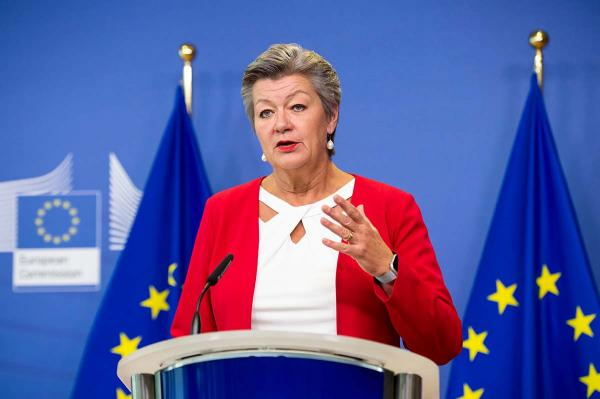
In the wake of the Forum on providing protection to Afghans at risk which took place Thursday 7 October 2021, we commend the EU Member States for the strong support that they showed on the evacuation and resettlement of Afghan refugees.
Twenty years ago, the international community committed to supporting Afghan women and protecting their rights while supporting Afghanistan. When these commitments were first made, the international community was on the ground in Afghanistan and could provide direct assistance and support to women. We must realize that this support has also made Afghan women a direct target of Taliban and other reactionary local and regional forces, as they celebrate their victory by reversing the progress made by Afghan women during the past twenty years.
With the fall of Afghanistan, and the scope of direct assistance on the ground becoming limited, the EU must meet its moral duty towards Afghan women and reaffirm and evolve its unwavering support to meet the changing needs of women and girls in Afghanistan.
We commend the statements made by President of the European Commission, Ursula von der Leyen, Commissioner for Home Affairs Ylva Johansson and other European leaders in support of evacuating and resettling Afghan women and children and in highlighting their special situation and the need to provide them humanitarian support.
We urge EU and other world leaders to take concrete action to support Afghan women, including those who choose to stay in Afghanistan, those who are unable to leave, and women refugees from Afghanistan in the EU and elsewhere. Without such concrete assistance, the credibility of commitments made twenty years ago will be cracked.
We applaud the actions that Member States and the EU have already taken toward the evacuation and resettlement of Afghans in need of refuge, as well as the humanitarian assistance provided. However, to fully provide support to Afghan women, their specific needs should be at the core of all humanitarian actions. We encourage Member States and the EU to partner with women’s organisations to provide gender-sensitive support to Afghan women in Europe, Afghanistan and elsewhere. This is fully in line with the joint commitment made by all of us in Europe, putting women in Afghanistan at the frontline of our support.
Afghanistan today when women bounce back, a statement from our Director Sabra Bano
September 28, 2021
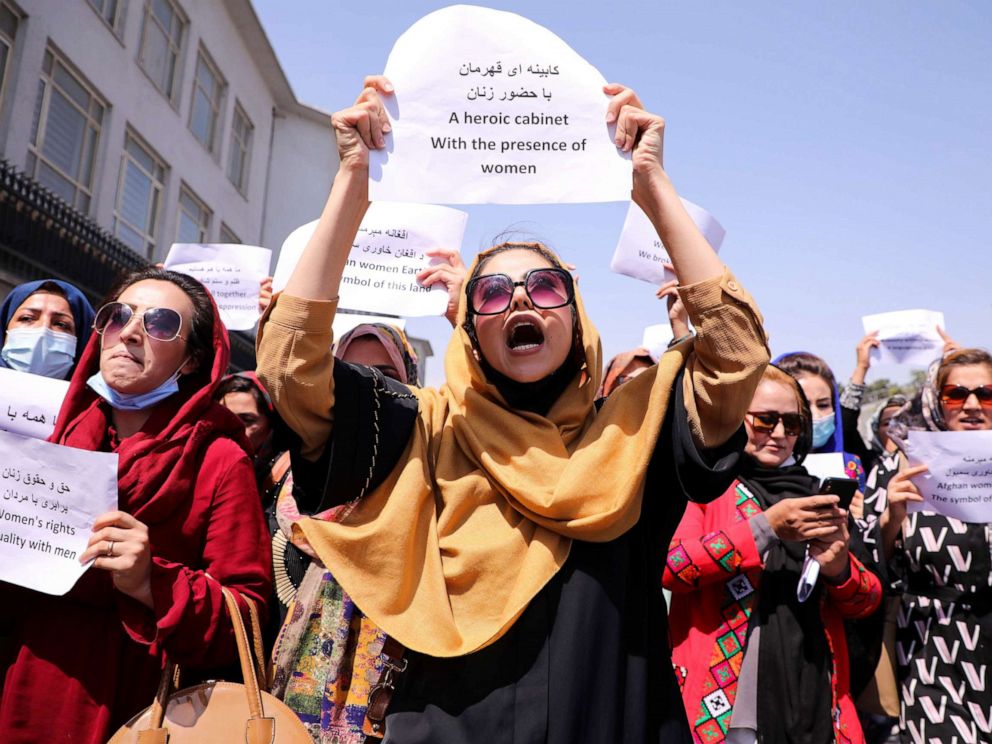
20 years of hard work in Afghanistan to acknowledge, accept and support women`s rights have been a rewarding exercise for all those involved, says director Sabra Bano
With the fall of Kabul, emerging testimonies of resilience and bravery of women from Afghanistan are a genuine tribute to the international women`s movement. The global wave of gender equality moves forward even in the face of ideological barricades, as the recent protests led by women in Afghanistan have witnessed. We salute the heroism of women in Afghanistan, she stated.
The resilience, persistence and struggle of Afghan women leaders has been and is defiant. It is inspirational, heartwarming and moving. While some boarded a flight to refuge abroad, many have stayed back on the home ground demanding their inclusion in governance and administration, and continuing the work as equal citizens.
What is happening in Afghanistan today is not exceptional to the women in the world. The women`s movement for gender equality is but continuously full of such challenges and brutalities under militarization and ideological tyranny.
20 years of partnership between Afghan and international women and women`s rights organisations has been a just and a fruitful exercise. As during the past years, Afghan women`s rights were fully addressed at national and international forums, and today women in Afghanistan have proven that they lead and determine their destiny all alone.
The world looks at them with pride and inspiration. When all lips are sealed, they broke the silence. When others are hiding in their homes, they take to the streets hand in hand, letting the world know that the Taliban are not the whole Afghanistan but just one actor within the Afghan society. Thus, the rest should remind them of their existence. Women in the world are known to have shown their courage and leadership in the worst situations of peace, security, disaster, pandemic, and chaos.
Afghan women are no exception to this vital role that women in the world have always played and will continue to play.
Women across the world are in solidarity with women in Afghanistan believing that they have the wisdom, courage, and strategy to deal with this change and setup of power. Let us show our support to all women and girls in Afghanistan and to their countless admirers and supporters around the globe.
Afghan Country Coordinator and family at risk have arrived in the Netherlands after surviving Taliban´s bullet
August 24, 2021

We are pleased to announce that today our Country Coordinator, Nazir Tofan, has arrived in the Netherlands together with his wife and daughter. Mr. Tofan and his family were at great risk in Afghanistan, which became even more apparent when last Friday Mr. Tofan´s wife, Sahar Obaidee, was shot in her arm by the Taliban after leaving their house to get bread.
Gender Concerns International is grateful to the Dutch Ministry, the Crisis Management Team and all staff on the ground for their brilliant support and for providing Women’s Human Rights defenders with safe passage from Afghanistan.
Country Coordinator and family at risk provided with safe passage after surviving wound from Taliban´s bullet
August 23, 2021
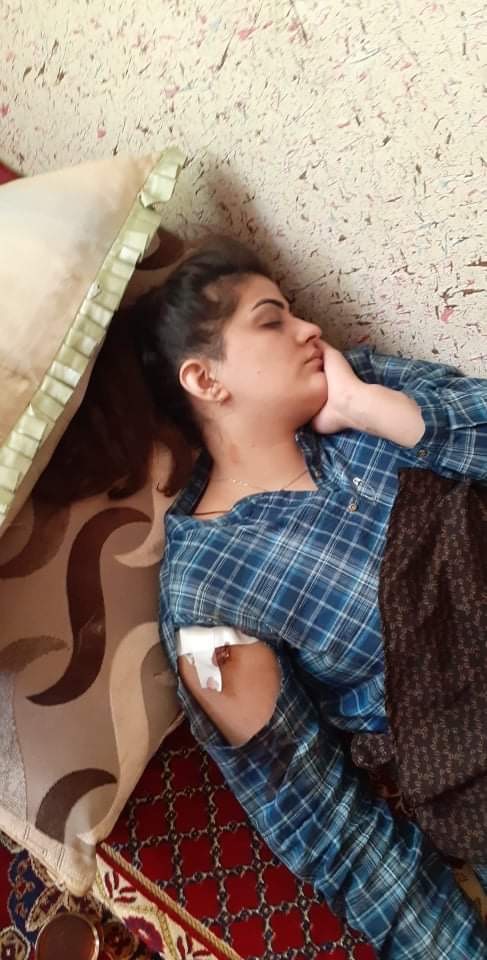
We are pleased to announce that today our Country Coordinator, Nazir Tofan, was brought out of Afghanistan together with his wife and daughter. We welcome this news, after it was reported to us that on Friday, August 20th, the wife of Mr. Tofan was shot in her arm by the Taliban.
Gender Concerns International is grateful to the Dutch Ministry, the Crisis Management Team and all staff on the ground for their brilliant support and for providing Women’s Human Rights defenders with safe passage.
The Evacuation of Human Rights Defenders Should Be Given Priority
August 20, 2021
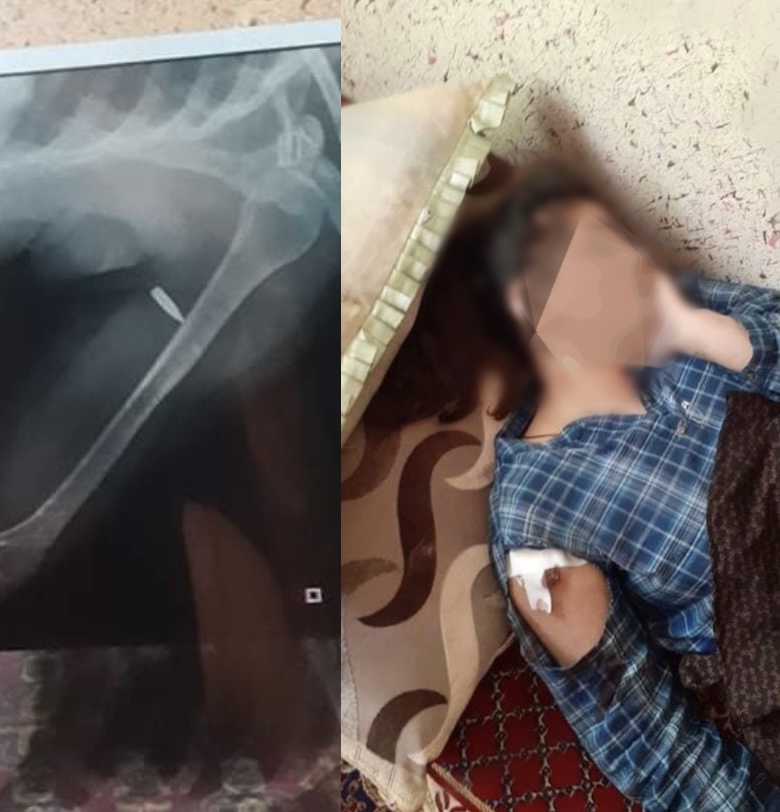
The brutality of the Taliban is continuously on the rise in Afghanistan, much more beyond the coverage of the local and international media.
Just today, we received a phone call from our staff in Kabul, reporting the shooting of a woman in full hijab, who was only trying to get groceries in the neighborhood. We condemn the attack on the wife of Mr. Tofan, our Country Coordinator in Afghanistan.
We hereby, in solidarity, express our full support to the people, especially women in Afghanistan, and hope for a swift return to peace and security in the country.
Afghanistan: Doha Peace Talks, Women Are Hopeful
March 2, 2021
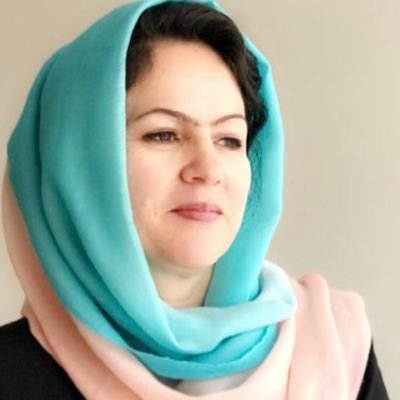
The Taliban have indicated that they will allow women to be educated, work and participate in politics. However, a large question persists: will women be promoted to positions of power in institutions such as the judiciary or the executive?
After decades of unrest, last year the Taliban and Afghan government finally decided to come together and have peace talks. Though this is a welcome change appreciated by many world-over, there is still a gap that exists. The biggest concern regarding the peace talks in Afghanistan is the exclusion of women from the negotiations. These peace talks are crucial as they can either go a long way in advancing the women's rights movement in Afghanistan, or set back the progress made so far by years. Hence, it is incredibly important that the International Community continues to support women in Afghanistan.
Not all hope is lost. Gender Concerns International has been a witness to Afghan Peace Talks and has been supporting women and observing their participation.
In mid-September, the Afghanistan Mechanism for Inclusive Peace (AMIP) reaffirmed the direct impact of inclusion of women representatives in the ongoing negotiations between the government and the Taliban. Gender Concerns International honoured and congratulated Afghan women and women's organisation's on the achievement and considered this a forward-looking development towards a gender-inclusive final agreement.
A peace negotiator in Doha, Fawzia Koofi, said on Sunday that they remain hopeful that the disputed points on procedural rules of the talks are removed within the next few days to resume the meetings between delegates from both sides of the negotiations.
The peace negotiations were inaugurated in September 2020 with the hope of ending the four decades of war in the country. Negotiating teams representing the Islamic Republic of Afghanistan and the Taliban held more than 10 meetings in a small set up, called contact groups, to discuss procedural rules for the talks. The two sides have agreed on almost all articles of the ground rules for negotiations except two: religious basis for the talks and the connection of the US-Taliban deal with the talks in Doha.
Sources familiar with the process said the host of the talks, Qatar, and other countries supporting the Afghan peace process have expedited their efforts to remove the hurdles in the way of the direct negotiations between both sides.
“The draft is exchanged between the two sides. Some words are added. Some words are changed. We hope to solve this issue within the next few days,” Koofi said.
Sources said that Qatar’s special envoy for Afghanistan, Mutlaq al Qahtani, has held talks with negotiating teams of both sides in the last few days and has exchanged their views with both teams. Meanwhile, a Qatari lawmaker Hind al-Muftah al-Tamim said the peace negotiations are going in the right direction. But according to critics, the Taliban so far has not shown flexibility in their stance about the US-Taliban deal as a basis for the negotiations.
Afghan Women with Disabilities Suffer Most Under Covid-19 Conditions
June 4, 2020
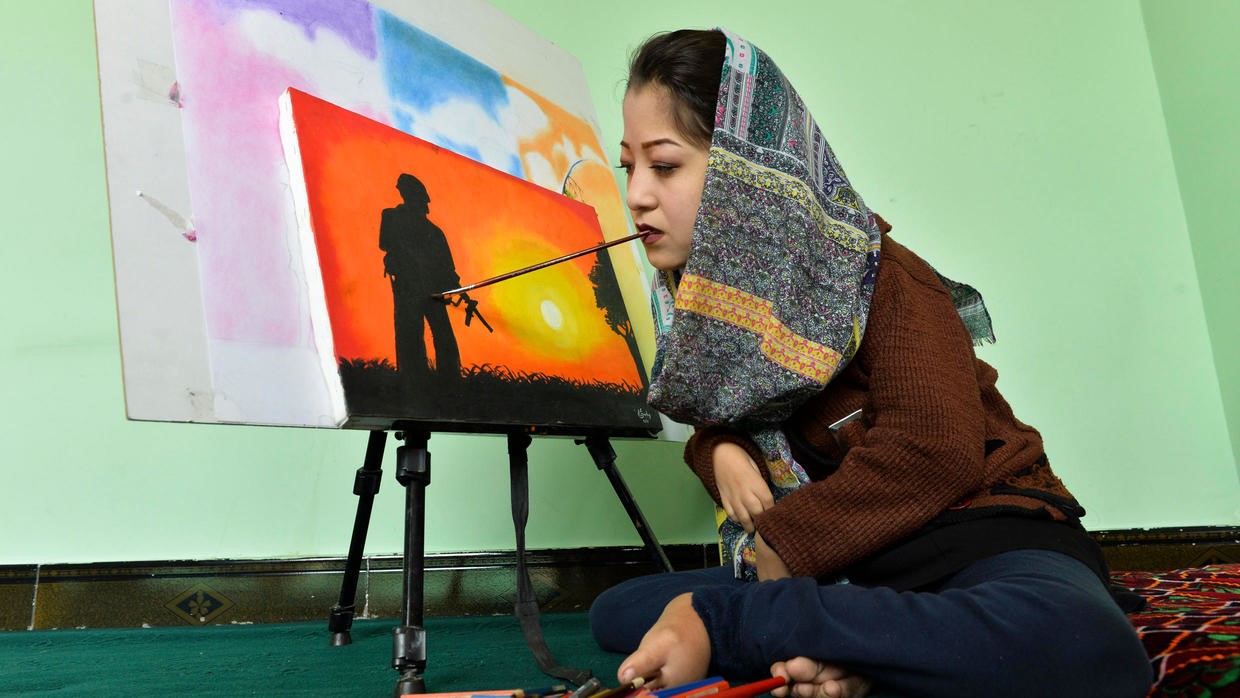
Women and girls with disabilities in Afghanistan are considered to be among the most hardly affected communities around the world by the corona virus pandemic. Afghanistan has an extremely high number of people with disabilities as a result of conflict, leaving the government with few resources to provide effective government services to all of its communities. Approximately 80 percent of girls with disabilities in Afghanistanface serious obstacles to accessing education facilities due to the social stigma, lack of ramps and transportation, limited knowledge of teachers to apply inclusive education. Instead, women and girls with disabilities tend to be kept isolated from the rest of the society, and treated as a source of shame for their families.
The problems that women with disabilities face daily are amplified as a result of the Covid-19 pandemic, particularly for those who live in rural areas. As medical clinics are commonly located in cities, rural inhabitants are forced to travel long distances in the absence of transportation to reach health services and even there treatment is not guaranteed.
Thus, even though the Afghan government expressed that they would protect the most vulnerable groups from the virus, disabled women seem to be forgotten.
Gender Concerns International therefore urges the International Community to offer more protection for women and girls with disabilities in Afghanistan, as well as support inclusive education and social programs aimed at alleviating the social stigma attached to any kind of disability.
#AfghanWomenDontGoBack: The Afghan Peace Deal Excludes Women and Disregards their Rights
March 3, 2020
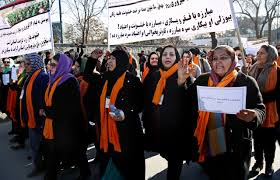
Gender Concerns International together with women’s organizations and civil society organizations all over Afghanistan have expressed their discontent with the Peace Agreement signed by the United States and the Taliban forces on the 29th of February 2020, and are calling for "an Afghan-owned, Afghan-led and Afghan-maintained" peace process. The agreement has been criticized for neglecting to uphold the human rights of its citizens and to respect the constitutional values of the Islamic Republic of Afghanistan which guarantees the equality of women. This is particularly important because women and other minorities continue to be marginalized and excluded from the negotiating table, despite considerable efforts to be politically represented and have their voices heard in male-dominated meetings and agreements. Completely disregarding the successful efforts made by Afghan women to achieve their freedom undermines the sustainability of the peace agreement itself, as half of the country’s population is female.
The Afghan Women’s Network has held a press conference sharing its concerns with this deal and suggesting solutions to reach a more inclusive peace process, using the hashtag #AfghanWomenDontGoBack. These suggestions include reducing violence against women, preserving all constitutional rights, demanding for elected representatives to take the lead in both intra-Afghan and external negotiations, and addressing these rights in an explicit manner. International organizations should put more pressure on the U.S. government to negotiate with the elected government of Afghanistan and safeguard human and civil rights.
Afghanistan Presidential Elections: Biometric System Impacted Low Rate of Afghan Women Voters
October 10, 2019
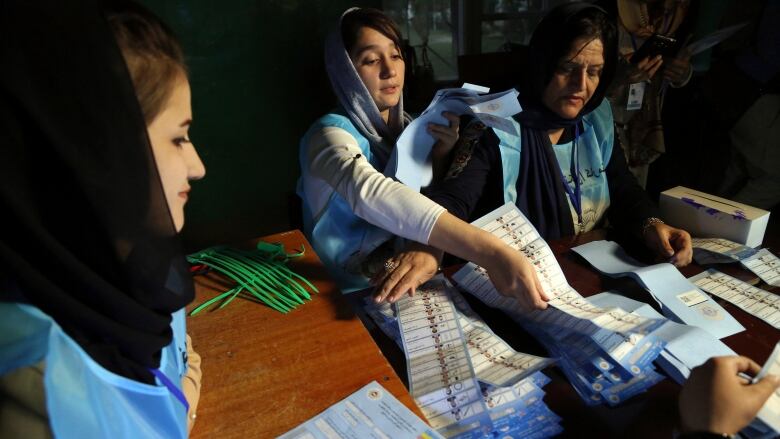
On the 28th of September, presidential elections took place in Afghanistan demonstrating failure in responding to the need of women voters.
Even though the women’s electoral participation since long has been a challenge for Afghan Election Management Bodies, the newly implemented anti-fraud measures have further impacted the scope of female votes, as justly was feared by women rights and other civil society organizations in Afghanistan.
The controversial anti-fraud measure requires a compulsory voter`s photo-take at a polling station. This issue has posed challenges to political parties and candidates in persuading women voters and their families to vote as most women in Afghanistan, observe strict purdah by covering themselves in public places. To be photographed by female polling staff would have not been a problem if there would be an appropriate presence of female polling staff. Prior to the election, the Election Commission stated that at least 1,450 of the nearly 30,000 polling stations employ no women. This had ignited the fury of eighteen women’s rights groups demanding
The Independent Election Commission (IEC) to withdraw this condition. Potential rural women voters found this is Un-Islamic and in contrast with customary practices to be photographed by men.
However, the general voter turnout was only around 20 percent, in a sharp contrast to the 60 percent of the previous presidential elections in 2014. Threats by the Taliban to attack polling stations were taken seriously by voters and Election Administration as more than 2000 Polling Stations remained unopened on Election Day.